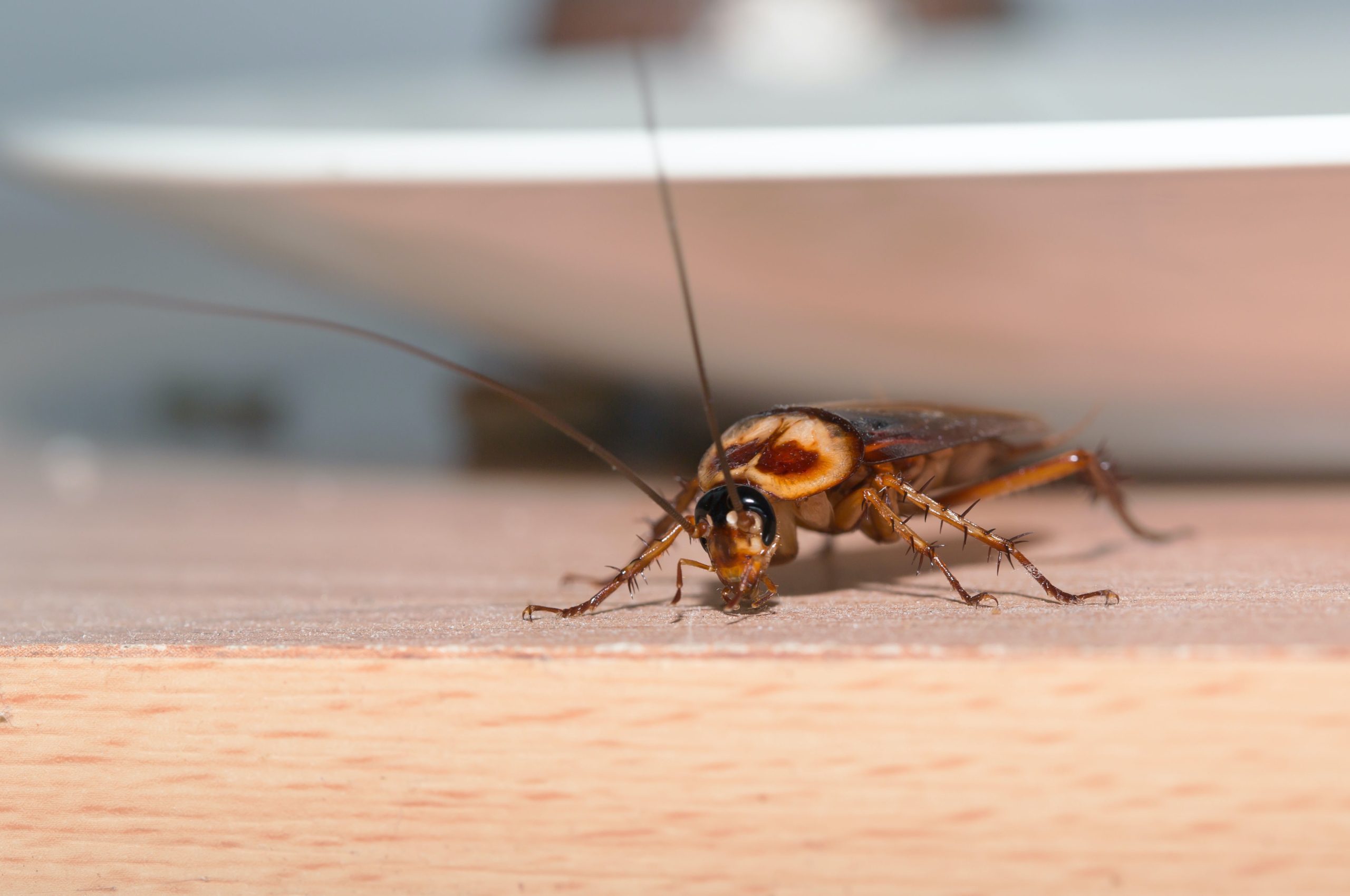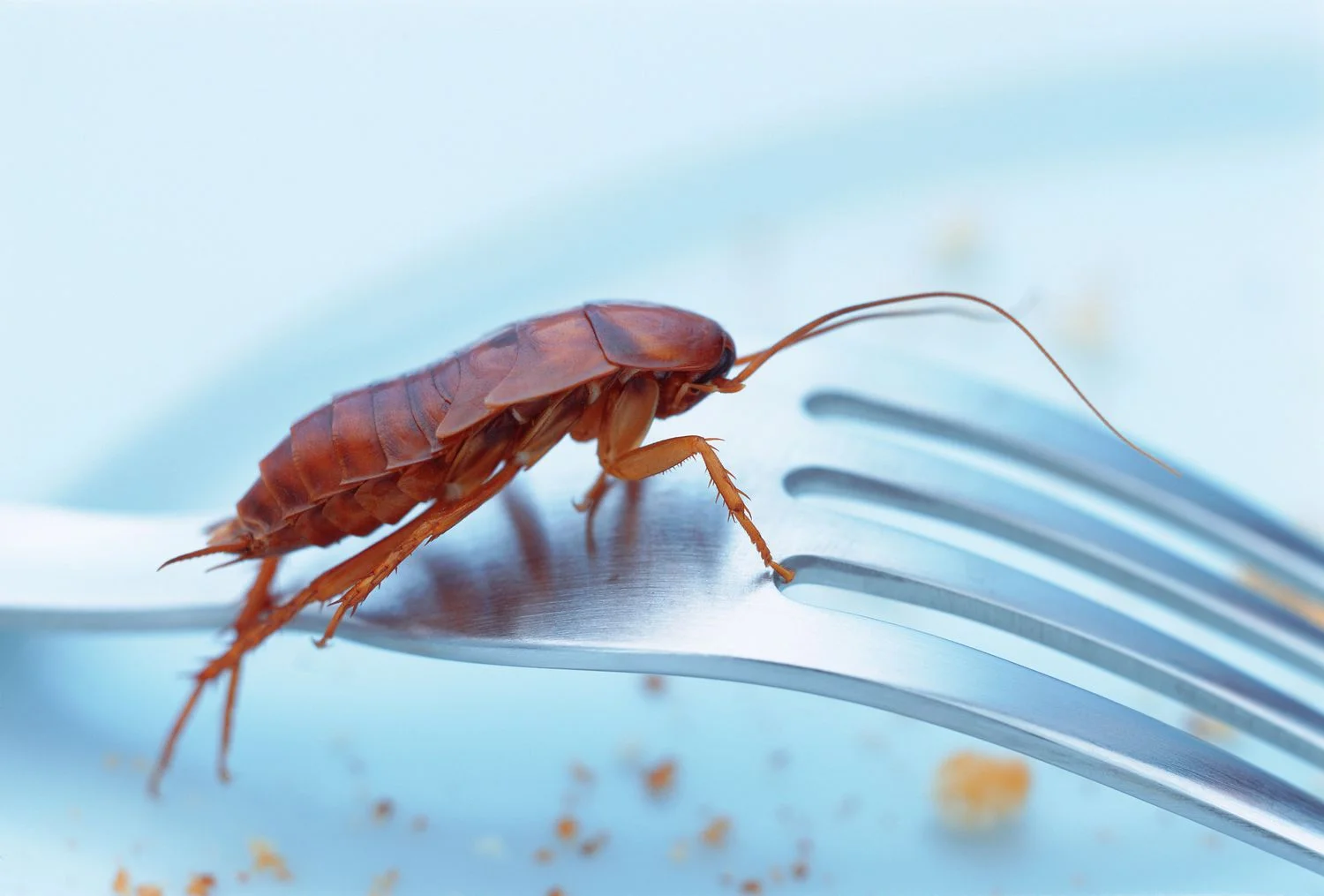Yes, you can be allergic to cockroaches. Cockroach allergies are common triggers of both allergies and asthma.
Their saliva, feces, and shedding body parts contain allergens that can aggravate symptoms and cause allergic reactions, making them one of the most common indoor allergies worldwide. Cockroach allergies can manifest in various symptoms, including itchy red rashes, particularly in children.
Studies also suggest that children allergic to cockroaches and exposed to them may require hospitalization for asthma more frequently than non-allergic children. The link between cockroach allergy and conditions like asthma and allergic rhinitis (hay fever) is strong, highlighting the significant impact of these allergies on overall health. Understanding the triggers and symptoms of cockroach allergies is crucial for effective management and treatment.

Credit: www.reddit.com
Causes And Triggers
Saliva
Cockroaches produce proteins in their saliva that can trigger allergic reactions in sensitive individuals.
Feces
The feces of cockroaches contain allergens that can become airborne and contribute to allergic symptoms.
Shedding Body Parts Of Cockroaches
When cockroaches shed their body parts, the particles can also act as allergens that worsen allergy and asthma symptoms.
Comparison To Other Indoor Allergies
Indoor allergies like dust mites and pet dander are common, but cockroach allergens can be just as potent in triggering allergic reactions.

Credit: acaai.org
Symptoms And Diagnosis
When it comes to cockroach allergies, it’s essential to be aware of the symptoms and ways to diagnose this condition. Recognizing the signs early and getting a proper diagnosis can help in managing the allergy effectively.
Common Symptoms Of Cockroach Allergies
- Coughing and wheezing
- Shortness of breath
- Chest tightness
- Nasal congestion
- Skin rashes or hives
- Itchy, watery eyes
- Sneezing
- Post-nasal drip
Diagnosing Cockroach Allergies
Diagnosing cockroach allergies typically involves a combination of comprehensive medical history, physical examination, and specific allergy tests. A healthcare provider may look for the presence of typical symptoms and consider environmental factors that could indicate exposure to cockroach allergens.
If a cockroach allergy is suspected, the healthcare provider may recommend skin prick tests or blood tests to identify specific IgE antibodies related to cockroach allergens. These tests help confirm the presence of an allergic reaction to cockroaches.
It’s important to seek professional medical advice for an accurate diagnosis and appropriate management of cockroach allergies.
Relationship With Health Conditions
When it comes to allergies, cockroaches may not be the first thing that comes to mind. However, these pesky insects can actually trigger allergic reactions and be a cause of various health conditions. Let’s explore the relationship between cockroaches and common health issues.
Connection To Asthma
Cockroaches can be a major trigger for asthma attacks. The saliva, feces, and shedding body parts of these insects contain allergens that act similarly to dust mites, causing symptoms such as wheezing, coughing, and shortness of breath.
Studies have shown that children who are allergic to cockroaches and are exposed to them have a higher risk of asthma-related hospital visits compared to other children with asthma. Therefore, it’s crucial to keep your living space free from cockroach infestations to minimize the risk of asthma attacks.
Risk Factors For Allergic Rhinitis
Allergic rhinitis, commonly known as hay fever, is another health condition that can be linked to cockroach allergies. Symptoms of allergic rhinitis include sneezing, a runny or stuffy nose, itchy eyes, and throat irritation.
If you are allergic to cockroaches, exposure to their allergens can worsen your allergic rhinitis symptoms. It’s essential to identify and eliminate any cockroach infestations in your home to reduce your exposure to these allergens and alleviate your symptoms.
Preventing Allergy-related Health Issues
- Keep your living environment clean and free from cockroaches. Regularly clean areas where cockroaches might hide, such as kitchen cabinets, appliances, and cracks in walls or floors.
- Seal any entry points for cockroaches to prevent them from entering your home. Consider using weatherstripping and sealing cracks and crevices.
- Store food in airtight containers to prevent attracting cockroaches.
- Dispose of garbage regularly and keep trash cans tightly sealed.
- Consider using cockroach traps or professional pest control services if you have a severe infestation.
By taking these preventative measures, you can significantly reduce your risk of developing allergies and health issues related to cockroaches.
Treatment Options
Cockroach allergies are a common indoor allergy and can trigger asthma and allergies. The saliva, feces, and shedding body parts of cockroaches act like dust mite allergens, aggravating symptoms. Seek appropriate treatment options to manage these allergies effectively.
Medications For Cockroach Allergies
If you’re suffering from a cockroach allergy, there are several medications that can help alleviate your symptoms. It’s essential to consult with a healthcare professional to determine the most suitable medication for your specific case. Some common medications used to treat cockroach allergies include:
- Antihistamines: These medications block the effects of histamine, a chemical released during an allergic reaction. They can reduce itching, sneezing, and runny nose.
- Corticosteroids: These anti-inflammatory drugs can be in the form of nasal sprays, inhalers, or pills. They help reduce inflammation and relieve symptoms such as nasal congestion and wheezing.
- Decongestants: These medications can provide temporary relief from nasal congestion by narrowing blood vessels and reducing swelling in the nasal passages. They are available in the form of pills, nasal sprays, or drops.
- Leukotriene modifiers: These medications block the action of leukotrienes, substances released during an allergic reaction. They help reduce inflammation and relieve asthma symptoms.
It’s important to follow the recommended dosage and usage instructions provided by your healthcare professional. They will guide you on how to use these medications safely and effectively.
Allergen Avoidance Strategies
Aside from medications, there are also strategies you can implement to minimize your exposure to cockroach allergens. Here are some effective allergen avoidance strategies:
- Keep your home clean and free of cockroaches: Regularly clean your living spaces and eliminate any areas where cockroaches can hide or breed. Use insecticides or seek professional pest control services if needed.
- Seal cracks and gaps: Seal any openings in walls, floors, and windows to prevent cockroaches from entering your home.
- Store food properly: Cockroaches are attracted to food sources. Keep all food stored in tightly sealed containers to reduce the risk of infestation.
- Use cockroach traps: Place cockroach traps in areas where they are commonly found to monitor and reduce their population.
- Improve ventilation: Ensure proper ventilation in your home to minimize humidity, as cockroaches thrive in humid environments.
- Regularly clean bedding and upholstery: Wash bedding, curtains, rugs, and upholstered furniture regularly to remove allergens.
Implementing these allergen avoidance strategies can significantly reduce your exposure to cockroach allergens and help alleviate your symptoms.
Prevention Methods
Cockroach allergies are common triggers of year-round allergies and asthma, with saliva, feces, and shedding body parts being potential allergens. These allergens can exacerbate symptoms, mimicking the effects of dust mites. Preventive measures such as regular cleaning and pest control can help minimize exposure to cockroach allergens, potentially reducing allergic reactions.
Prevention MethodsMaintaining a Clean Home Environment ———————————— Cockroaches thrive in dirty environments, so keeping your home clean is crucial. Clean up food crumbs, spills, and dirty dishes promptly. Store food in airtight containers and minimize clutter in your home to eliminate potential hiding places for these pests.Sealing Entry Points for Cockroaches ———————————— To prevent cockroaches from entering your home, seal all entry points such as cracks, crevices, and gaps around doors and windows. Use caulk or weather stripping to seal these openings and prevent these pests from gaining access to your living spaces.By adopting these prevention methods, you can significantly reduce the risk of cockroach infestations and minimize the potential for allergic reactions associated with these pests.Remember, maintaining a clean home environment and sealing entry points are essential steps in preventing cockroach allergies.Impact On Specific Groups
Effect On Children
Allergies to cockroaches can have a severe impact on children. Youngsters exposed to cockroach allergens may develop respiratory issues and skin reactions, such as itchy rashes. Children with cockroach allergies are at a higher risk of asthma attacks, leading to more frequent hospital visits compared to other children with asthma.
Impact On Individuals With Asthma
Individuals with asthma face exacerbated symptoms when exposed to cockroach allergens. The saliva, feces, and shedding body parts of cockroaches act as triggers for asthma attacks. These allergens can worsen breathing difficulties and lead to increased respiratory distress in asthma patients.
Research And Insights
Research and InsightsStudies have shown a correlation between cockroach exposure and increased asthma and allergy symptoms.
In a recent study, researchers found that cockroach allergens can exacerbate respiratory issues.
Understanding these allergens is crucial for developing effective treatment strategies.
New Developments In Understanding Cockroach Allergens
Researchers are delving deeper into the composition of cockroach allergens to identify specific triggers.
New findings suggest that certain proteins in cockroach saliva and feces are potent allergens.
This research may pave the way for targeted therapies to alleviate cockroach-induced allergies.

Credit: palmcoastpestcontrol.com
Frequently Asked Questions
How Common Is A Cockroach Allergy?
Cockroach allergies are common indoor allergies globally. They rank among the most prevalent indoor allergens triggering asthma and allergies.
How Do You Become Allergic To Cockroaches?
Exposure to cockroach saliva, feces, and shed body parts can trigger allergies and asthma.
What Does A Roach Rash Look Like?
A roach rash appears as itchy red rashes, often seen on the face, neck, arms, and legs. The rash is scaly and commonly affects children, resulting from cockroach allergens triggering atopic dermatitis on the skin.
Conclusion
Being allergic to cockroaches is more common than you might think. Not only can cockroach allergens trigger asthma, but they can also cause atopic dermatitis. It’s important to be aware of the symptoms and seek treatment if needed. Don’t underestimate the potential impact of these pests on your health.
Related posts:

I’m MD Tanvir, and I bring years of expertise gained from working closely with pest control companies to the forefront. My journey in the industry has inspired me to launch Bug Battler, a platform aimed at equipping people with the know-how to combat pests autonomously. Through Bug Battler, I aim to empower individuals with practical insights to tackle pest infestations effectively.

